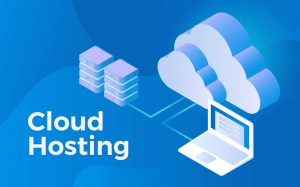How Can an LMS Help Your Business?

This article will briefly cover what you should know about an LMS. LMS is an abbreviation for the phrase Learning Management System.
LMS is a powerful web-based software that allows businesses to deploy effective online training programs across a multitude of locations.
Who Uses an LMS?
Learning Management Systems (LMS) are utilized by a wide range of organizations and individuals across various sectors.
Educational Institutions:
Schools, colleges, universities, and other educational institutions are among the primary users of LMS platforms. Teachers, professors, and instructors use LMS to manage their courses, distribute learning materials, assign tasks, conduct assessments, and communicate with students. Students access the LMS to view course content, participate in discussions, submit assignments, take quizzes, and track their progress. LMS platforms streamline the administration of academic programs, enhance collaboration between faculty and students, and provide a centralized hub for learning resources.
Corporate Training Departments:
Many businesses and organizations employ LMS platforms to deliver training and development programs to their employees. Training managers and administrators use LMS to create and deploy training courses, track employee progress, assess learning outcomes, and ensure compliance with industry regulations. Employees utilize the LMS to access training materials, complete mandatory courses, acquire new skills, and advance their professional development. LMS platforms help organizations enhance workforce productivity, improve employee engagement, reduce training costs, and maintain a skilled workforce.
Government Agencies:
Government entities at the local, state, and federal levels leverage LMS platforms to deliver training programs to their employees and constituents. Government agencies use LMS to provide employee training on policies, procedures, and regulations, as well as to offer educational resources to citizens on various topics such as health, safety, and public services. LMS platforms enable governments to disseminate information efficiently, promote lifelong learning, and enhance public awareness and engagement.
Nonprofit Organizations:
Nonprofit organizations and NGOs utilize LMS platforms to deliver educational and capacity-building initiatives to their staff, volunteers, beneficiaries, and stakeholders. Nonprofits use LMS to provide training on programmatic activities, fundraising strategies, advocacy efforts, and community development initiatives. LMS platforms enable nonprofits to scale their impact, increase organizational effectiveness, and empower individuals and communities through education and skill development.
Professional Associations:
Professional associations and industry bodies employ LMS platforms to offer continuing education and certification programs to their members. Associations use LMS to deliver online courses, webinars, conferences, and workshops on topics relevant to their members’ professions or sectors. Members access the LMS to fulfill continuing education requirements, earn professional credentials, stay current with industry trends, and network with peers. LMS platforms help professional associations enhance member engagement, build community, and foster lifelong learning among professionals.
Overall, Learning Management Systems are versatile tools that cater to the diverse needs of educational institutions, businesses, government agencies, nonprofits, and professional associations.
We will discuss some of the basic questions that arise in every organization’s mind before using an LMS.
Why use an LMS?
LMS provides a flexible and cost-effective way to organize and run training programs for your employees, clientele, or partners. The system includes all the necessary modules, such as Learning Management System, Virtual Training Assistance, Electronic Training Answers, and elearning modules. With a learning management system, your training providers can offer effective training to your employees at lower costs. With this in place, training providers need not struggle with delivering content over many different platforms, or with managing different personnel and equipment.
Why should I consider in-house LMS?
One of the major benefits of an in-house learning management system, is that it gives your training company consistent access to a world-class content library of high-quality information that will be immediately available to your employees. This will help in producing better results and reduce training costs, while also preventing interruptions from outside sources who may have to wait for approved in-house content to be made available to them. Your employees will also have immediate access to any training manuals or instructions in the case of a question or concern.
Is in-house LMS right for every training provider?
While an LMS has great benefits, it is not for everyone. In most cases, in-house training companies are more expensive than training companies that use an LMS. You will also need to ensure that your employees have enough storage space for accessing the training content. With an LMS, training providers have the potential of using up to 75% more storage space than a traditional learning management system.
How should I implement an LMS for my training providers?
An LMS should be implemented in tandem with your elearning initiatives. Most LMSs now allow you to provide training to your employees across multiple locations, so you should have no problem providing training to your employees anywhere in the world. This capability is what sets an LMS apart from online training, as you can easily provide training to your employees even if they are in different time zones.
How do I get started with my LMS for training providers?
Once you have decided to implement an LMS across multiple locations, you should consider a few things to ensure your system is ready for the future. Most LMSs now come with their development pathway, which will allow you to easily create training modules that are based on your LMS and your business goals. This helps to ensure that your LMS provides a consistent development pathway for all your employees.
What are the best features of an LMS for training providers?
One of the best features of an LMS for training providers is the availability of your elearning solutions. With elearning solutions provided by your LMS, your training providers can create elearning modules tailored to the needs of your business and the needs of your learners. Your elearning solution should help your employees understand your organization’s processes and practices while helping them retain information. An LMS should also make it easy for your staff to access training materials and should make them enjoyable to participate in.
Can I have online training anytime I want?
Another benefit of an LMS for training providers is that you can schedule your elearning solutions around your working hours or the time your workforce is available. You can also schedule the course material that you want to be distributed across multiple locations, but you can only do this one per week. An LMS makes it easy to ensure that you comply with compliance standards while making it easy for you to keep your entire workforce up to date at all times.
Conclusion-
An LMS is a great tool for handling all of the aspects of your business from your company’s website to its contact management and billing systems. The question that arises is, how do you use an LMS to best serve your needs. To understand how an LMS can help your business, you need to have an understanding of what an LMS does. A brief look at how an LMS works may help you realize why an LMS may be just the thing for your business.






